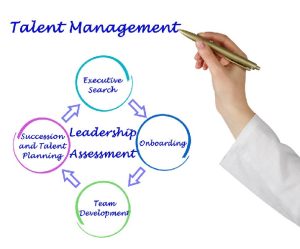“Unlock business success by understanding the four key roles of leadership . Ignite your potential, and lead with confidence!
Leadership roles are crucial for business success. Influential leaders inspire teams, drive strategy, and foster innovation. They create a positive culture that enhances employee engagement, guides organisations toward achieving their goals, and sustains competitive advantages.
Key leadership roles
Comprehending essential leadership roles is crucial for effective team dynamics, fostering collaboration and productivity. The leadership training for students plays a significant role in developing these skills early on, helping individuals gain clarity in responsibilities, enhance decision-making, and influence organisational culture. This type of training drives overall success by empowering individuals to fulfil their best potential.
Leadership in Business
Leadership in a business involves guiding and inspiring a team to achieve common goals. Influential leaders set a clear vision, communicate openly, and foster a positive work environment where employees feel valued and motivated. They lead by example, make decisions that benefit the team and organisation, and encourage collaboration and innovation. Good leadership drives productivity and helps build trust and loyalty among employees, ultimately contributing to the business’s overall success.
Misconceptions about leadership roles
Many people mistakenly believe that leadership solely involves power and authority. In reality, influential leaders prioritise empathy, collaboration, and communication, fostering an environment where team members can thrive while guiding them toward shared goals and visions.
The Four Key Roles of Leadership
Visionary:
Leaders are responsible for setting a clear vision and direction for the organisation. They articulate goals and objectives, inspiring the team to achieve a shared purpose.
Communicator:
Influential leaders excel in communication, ensuring information flows smoothly throughout the organisation. They listen actively, provide feedback, and foster an open dialogue to build trust and engagement.
Motivator:
Leaders play a crucial role in motivating and inspiring their team members. They recognise individual strengths, celebrate achievements, and create a positive work environment encouraging collaboration and innovation.
Decision-Maker:
Leaders are tasked with making informed decisions that guide the organisation. They analyse situations, weigh options, and consider the impact of their choices on the team and overall goals, demonstrating accountability and sound judgment.
These four roles are essential for effective leadership. They help drive the organisation’s success while supporting and developing team members.

Ways to Improve and Refine Leadership Roles
Enhance Communication Skills
Practice active listening and provide clear, concise messages. Seek feedback from team members to understand how your communication can be improved.
Set Clear Goals
Review and update organisational goals regularly to ensure they align with the vision. Clarify objectives using SMART criteria (Specific, Measurable, Achievable, Relevant, Time-bound).
Develop Emotional Intelligence
Work on understanding your own emotions and those of others. This will help you connect better with your team, resolve conflicts, and foster a supportive environment.
Encourage Collaboration
Create opportunities for collaboration to foster a culture of teamwork. Encourage diverse perspectives and empower team members to contribute ideas.
Seek Continuous Learning
Stay informed about industry trends and leadership best practices. Attend workshops, read books, and take online courses to enhance leadership skills.
Solicit Feedback
Regularly ask peers, mentors, and team members for feedback about your leadership style. Use this input to make adjustments and improve your effectiveness.
Practice Decision-Making
Improve your decision-making skills by analysing past decisions, reflecting on their outcomes, and learning from mistakes. Involve your team in the decision-making process to gain different perspectives.
Lead by Example
Model the behaviour you expect from your team. Demonstrate accountability, integrity, and a strong work ethic to inspire others to follow suit.
Invest in Team Development
Support your team members’ growth through training, mentorship, and professional development opportunities. Recognise their strengths and help them set personal goals.
Adaptability
Cultivate flexibility in your leadership style to adjust to different situations and team dynamics. Be open to change and willing to embrace new approaches.
FAQs
What are the four functions of leadership?
Leadership serves four essential functions: setting a vision to guide the team, fostering collaboration and motivation among members, facilitating effective communication for clarity, and ensuring accountability for achieving desired outcomes while navigating challenges together.
What are the four rules of leadership?
The four essential leadership rules involve clear communication, setting a positive example, empowering team members to take initiative, and maintaining accountability. Influential leaders inspire trust and collaboration, fostering a motivated and cohesive team environment.
What are the four elements of leadership?
Leadership encompasses four essential elements: vision, which inspires and guides; communication, necessary for conveying ideas; integrity, fostering trust and accountability; and empathy, enabling leaders to connect with their team and understand diverse perspectives effectively.
What are the four essential roles of leadership in executing strategy?
Leadership plays four essential roles in executing strategy: setting a clear vision, aligning team efforts with objectives, fostering collaboration and communication, and adapting to change. These roles ensure effective implementation and drive organisational success through strategic initiatives.










